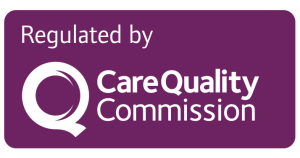Why There Needs to Be More Support for People with ADHD in the Workplace

For many adults with Attention Deficit Hyperactivity Disorder (ADHD), the workplace can be both a place of opportunity and a source of daily challenge. While awareness of ADHD is growing, there is still not enough structured support for employees with ADHD in professional environments. At Harley Street ADHD, we regularly hear from patients who feel overlooked, misunderstood, or under-supported in their careers.
Understanding ADHD in adults at work
ADHD doesn’t only affect childhood. It is a lifelong neurodevelopmental condition that can impact focus, organisation, working memory, and time management. In the context of the modern workplace with constant emails, deadlines, and competing priorities these challenges can feel magnified.
However, ADHD at work is not just about difficulties. Many adults with ADHD bring energy, creativity, problem-solving skills, and innovative thinking to their roles. Employers who understand ADHD in the workplace often benefit from higher engagement, improved team performance, and unique perspectives.
Why current workplace support for ADHD falls short
Despite these strengths, workplace support for ADHD is still limited in many industries. The main barriers include:
Stigma and misunderstanding: ADHD is still commonly misunderstood as disorganisation or laziness, rather than a recognised condition.
Limited reasonable adjustments: Many employees are not aware of their right to workplace reasonable adjustments for ADHD under the Equality Act (2010).
Lack of training for managers: Without ADHD awareness training in the workplace, leaders may struggle to support neurodiverse staff effectively.
Reluctance to disclose: Fear of judgement or career setbacks can stop employees from seeking support or asking for accommodations.
The benefits of supporting employees with ADHD
When workplaces build a culture of support, the results are clear. Research consistently shows that neurodiverse teams outperform those lacking diversity in problem solving and innovation. For employees with ADHD, even small strategies can make the difference between stress and success, for example:
- Flexible working arrangements and hybrid schedules.
- Quiet spaces or noise-cancelling tools to improve concentration.
- Clearer instructions and structured deadlines.
- Assistive technologies such as task management apps.
Above all, workplace ADHD support helps employees feel valued and understood, which improves retention, performance, and mental wellbeing.
How employers can improve ADHD support in the workplace
Providing meaningful support doesn’t need to involve costly changes. Simple, proactive steps can have a big impact:
- Introduce ADHD awareness training for managers and HR teams.
- Create supportive policies that recognise neurodiversity and workplace reasonable adjustments for ADHD.
- Encourage open conversations around neurodevelopmental conditions.
- Offer access to assessments and treatments through CQC registered ADHD providers, like Harley Street ADHD.
- Provide ongoing check-ins rather than one-off interventions.
Why change is urgent
With more adults than ever receiving ADHD assessments, workplaces need to evolve quickly. A culture of understanding can unlock talent, improve staff satisfaction, and reduce absenteeism. Ultimately, making space for ADHD support in the workplace is not only the right thing to do but also a smart business decision.
How Harley Street ADHD can help
At Harley Street ADHD, we provide CQC-registered ADHD assessments, treatment, and ongoing support specifically tailored for adults. We also partner with organisations and employees to recommend workplace adjustments that make a real difference.
If you are an employer keen to foster an inclusive workplace, or an individual looking for strategies to manage ADHD at work, we are here to help.
Get in touch with Harley Street ADHD today to learn more about how our evidence-based assessments and treatments can support both employees and employers in navigating ADHD in the workplace.








